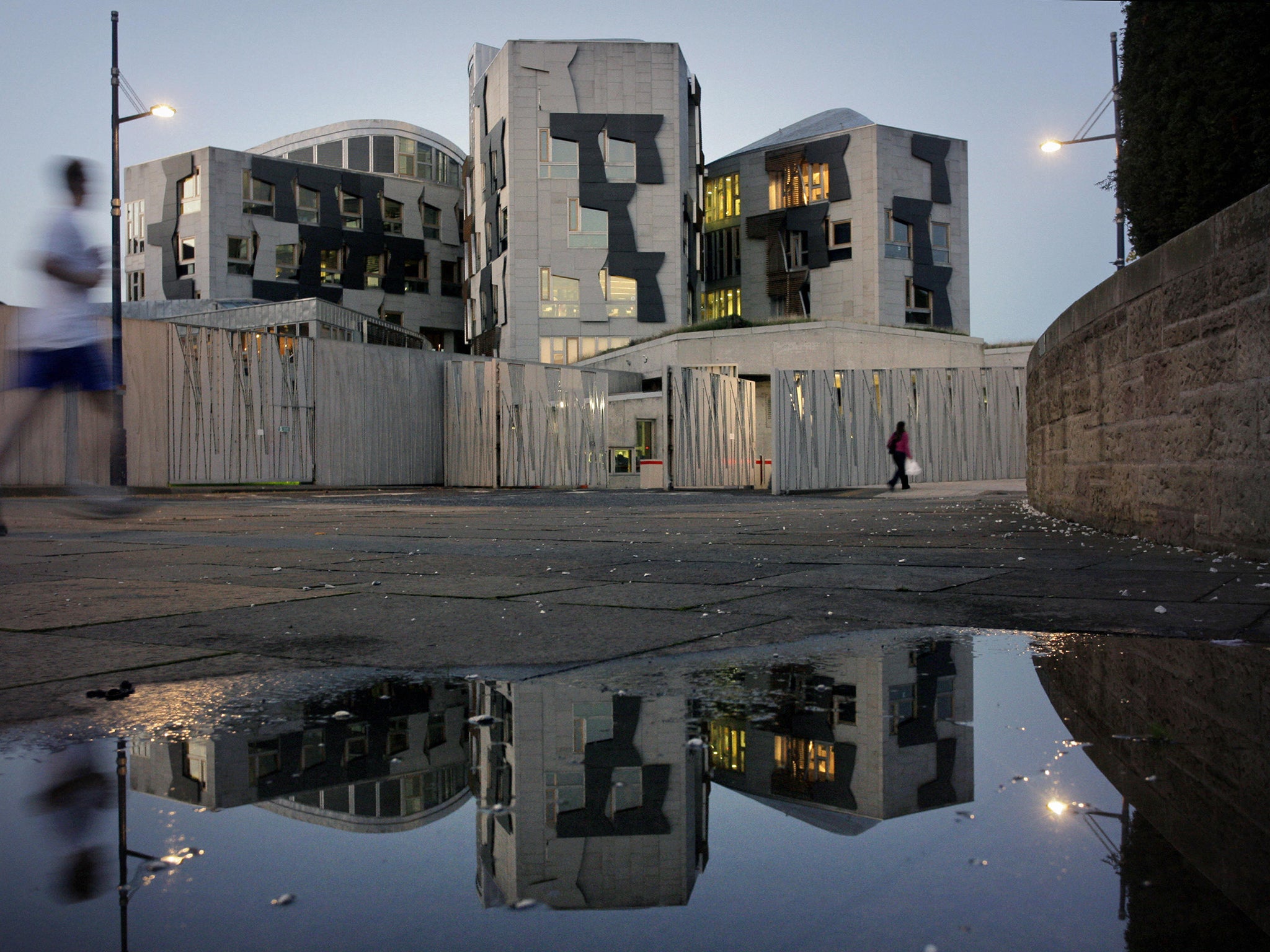The future of Scotland: What each Westminster party needs to do now

Your support helps us to tell the story
From reproductive rights to climate change to Big Tech, The Independent is on the ground when the story is developing. Whether it's investigating the financials of Elon Musk's pro-Trump PAC or producing our latest documentary, 'The A Word', which shines a light on the American women fighting for reproductive rights, we know how important it is to parse out the facts from the messaging.
At such a critical moment in US history, we need reporters on the ground. Your donation allows us to keep sending journalists to speak to both sides of the story.
The Independent is trusted by Americans across the entire political spectrum. And unlike many other quality news outlets, we choose not to lock Americans out of our reporting and analysis with paywalls. We believe quality journalism should be available to everyone, paid for by those who can afford it.
Your support makes all the difference.Despite the opening of the Holyrood Parliament 15 years ago, most high-flying Scottish Labour politicians have continued to focus their ambitions and energies south of the border.
With the promised devolution of fresh powers from Westminster to Edinburgh that could rapidly change, and Scotland’s brightest young Labour talents could opt in future to build their political careers in their homeland.
That will prove essential if the party is to rebuild its strength in a country where its decades-old grip on power has been slowly slipping.
The warning signs from the 2007 and 2011 parliamentary elections, when the SNP topped the polls, were reinforced by the referendum campaign as Labour struggled to prevent mass defections to the Yes camp among previously loyal supporters in western and central Scotland.
For a party that once took the support of hundreds of thousands of Scots for granted, the campaign provided another reminder of its patchy efforts at organisation.
It will now have to take the opportunity to rejuvenate itself and project itself as a party at a remove from its London headquarters. The perception that Labour was part of a “Westminster establishment” has proved increasingly damaging on the doorsteps of Glasgow, Dunbartonshire, Lanarkshire and Dundee.
The likes of Douglas Alexander and Jim Murphy could perhaps decide their future could lie in Scottish politics, particularly if they find themselves banned from involvement in purely English issues following a radical overhaul of how Westminster operates.
For the Conservatives, whose political obituary is frequently written in Scotland and who are constantly reminded that there are more pandas than Tory MPs in Scotland, the referendum campaign provides some reassurance.
Their supporters (around one in six of Scottish voters) appear to have turned out en masse to back the status quo, to such an extent that they had a crucial influence on the outcome. Overall, the referendum provided a reminder that, despite Scotland’s vaunted centre-left leanings, substantial chunks of its rural areas still have conservative instincts.
The challenge for Scottish Tories is to transform those instincts into votes. The use of proportional representation in Holyrood has given them a voice absent from Westminster, and in Ruth Davidson they have a leader who is charismatic and persuasive.
By common consent Ms Davidson, who introduced David Cameron at last year’s Tory conference, was one of the success stories of the Better Together campaign. Moreover, the Tories have adopted a distinctive position on “devo max”, backing a more radical transfer of tax-varying powers to Scotland than Labour is prepared to contemplate.
The Liberal Democrats are in a bleak position in Scotland, having been severely punished in the last Holyrood elections for entering into coalition with the Tories. They are now braced for the loss at next year’s general election of several of their 11 Scottish seats.
The referendum suggested that in areas where they are dug in, such as Fife and the Borders, their strong organisation can still get the vote out. They will also hope the challenge from the SNP, their main rival in many of those constituencies, could fade after its referendum defeat.
The Liberal Democrats must find Scottish voices who can replace the likes of Lord Steel and Sir Menzies Campbell to present a fresh appeal to younger electors, and who are prepared to dedicate themselves to Holyrood.
The party has long backed a federal vision of the UK which could resonate with Scottish voters – if can it persuade them to listen.
Join our commenting forum
Join thought-provoking conversations, follow other Independent readers and see their replies
Comments